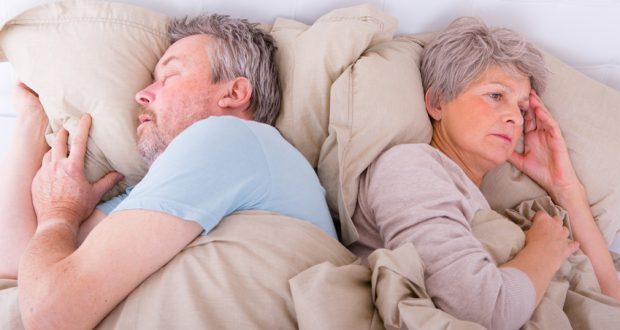You know the feeling… you wake up groggy, still drowsy, and have to force yourself out of bed to start the day. Well, not only does a bad night’s sleep affect your mood, it can also affect blood sugar.
Individuals with type II diabetes are more likely to suffer from Obstructive Sleep Apnea (OSA.) This condition occurs when the airways become blocked during sleep breathing becomes interrupted as a result. Those who have sleep apnea, but do not use a breathing (CPAP) machine, could experience declines in heart health and blood sugar control, according to researchers.
The body’s reaction to lack of sleep can mimic insulin resistance. Insulin resistance occurs due to the cell’s inability to utilize insulin. This results in high blood sugar. Imagine if your blood sugar was spiking every single night simply because you were having trouble sleeping… yikes!
Have you noticed that your blood sugar tends to be higher in the morning when you wake up? The dawn phenomenon is a normal, natural rise in blood sugar that occurs in the early morning hours, between roughly 4-8 AM when the person is about to wake for the day.
This natural rise occurs in everyone, whether they have diabetes or not. It’s simply a matter of how high the blood sugar goes, and if the body can respond without intervention. People without diabetes likely never even notice because their body has sufficient insulin available to control the glucose.
A person with diabetes is more likely to experience symptoms because there is either not enough insulin available, or the body’s cells are resistant to it. Therefore, someone with diabetes is more likely to experience the effects of morning high blood sugar. These effects can include nausea, weakness, disorientation, and extreme thirst.
If you are not sleeping well, you may find yourself not only feeling tired, but feeling sick as well. People are more likely to catch the common cold when they are behind on their rest. Not only is being sick an inconvenience, but as the body’s immune system is compromised, there also comes an increased vulnerability to more severe infections, diseases, etc.
Losing sleep can also affect your weight. Lack of sleep may be related to increased hunger, appetite, and possibly even obesity. People who experience difficulty sleeping may also be less likely to exercise and engage in physical activity, and therefore may have more difficulty maintaining a healthy weight.
When you’re tired, you’re hungry! Lack of sleep appears to not only stimulate appetite in general, it also stimulates cravings for high-fat, high-carbohydrate foods. This is because the body is looking for quick energy to give it fuel to keep going.
For diabetics, an increase in appetite, especially for high-carbohydrate foods makes healthy eating, and blood sugar management, more challenging. Eating healthful foods in proper portions throughout the day will keep energy levels and blood sugar more stable.
Studies have linked some foods we eat to the relief of insomnia symptoms. Research suggests that being calcium-deficient may make it difficult to fall asleep. Dairy products like yogurt and milk are good sources of calcium. Be sure to choose full fat dairy products as they contain less sugar. Green leafy vegetables, such as kale and other greens, also contain calcium.
Because not everyone loves a kale salad before bed, here are a few more tips to help you sleep:
One way to help improve your night’s sleep is to form a bedtime routine. Perhaps you enjoy a warm bath each night before bed; add some lavender or chamomile bath oil to relax your muscles and your mind.
Exercise can also help send you off to dreamland. You may prefer to sleep with a fan in your room for noise and air circulation. Your daily exercise may be a walk with your spouse every evening before dinner.
If you have multiple errands for the next day, write them down in a to-do list before lying down to sleep. Avoid looking at brightly lit screens (television, cell phone) as these stimulate your brain and can keep you awake.
By practicing stress-reduction techniques, we can lower the toll on our minds and bodies. Take a few moments every day to simply rest and breathe. Meditation and prayer are two more ways to calm your spirit and relax. Or give yoga a try to combine exercise and meditation in one.
Quality sleep is essential to a happy and healthy life for everyone, and especially for diabetics. So take charge of your sleep, and enjoy the many benefits a good night’s rest will bring you!
Sources:
http://www.diabetes.co.uk/news/2017/jun/untreated-obstructive-sleep-apnea-could-worsen-heart-health-and-blood-sugar-levels-92999411.html
http://www.eatingwell.com/nutrition_health/nutrition_news_information/9_foods_to_help_you_sleep
 Diabetic Kitchen
Diabetic Kitchen





2 comments
Pingback: Snooze Food - Eat This, Sleep Better
Pingback: Are These Bad Habits Affecting Your Health?